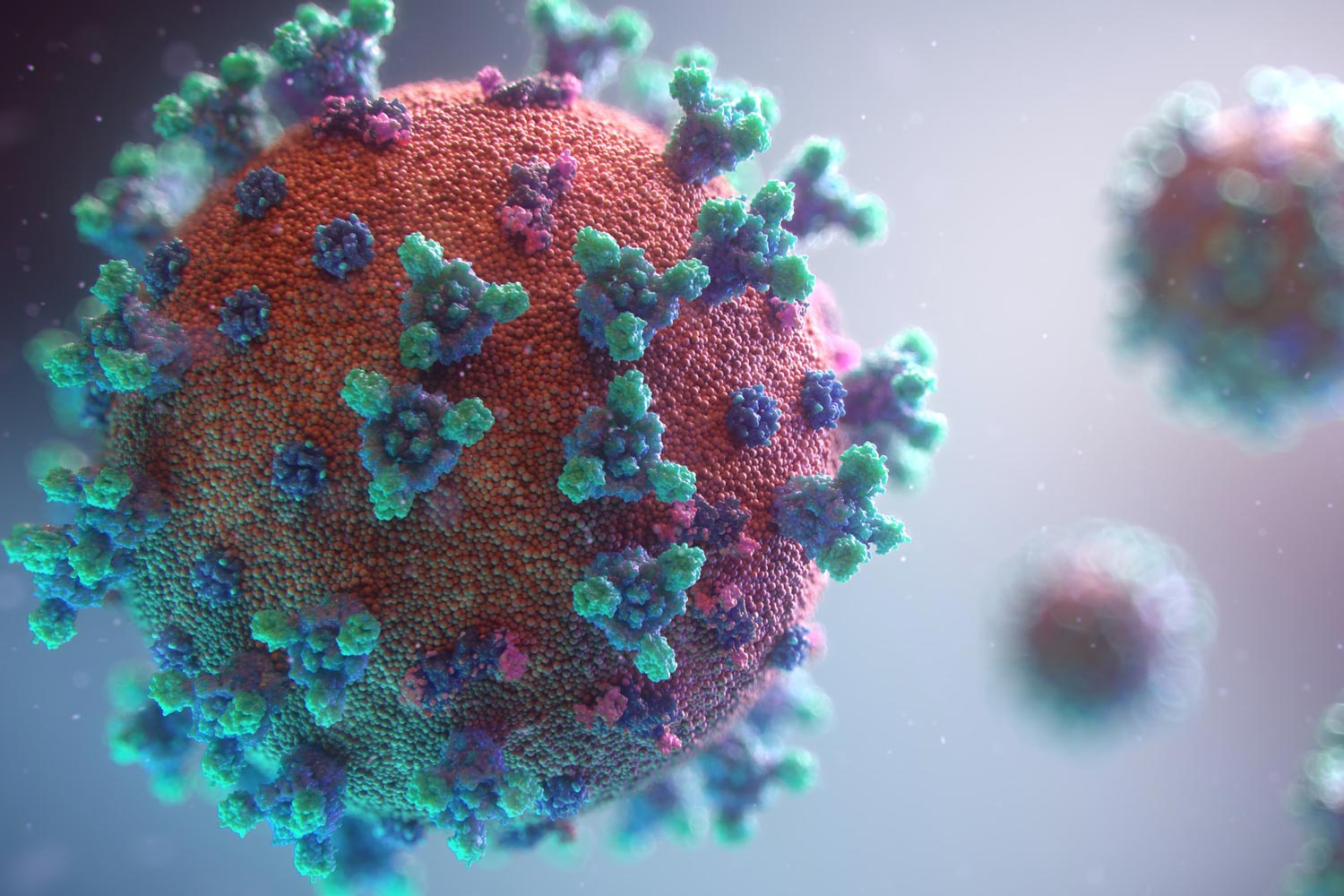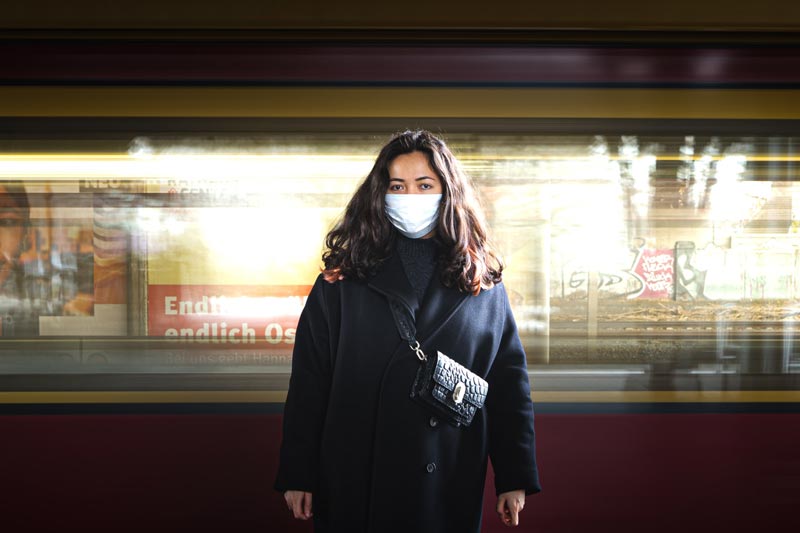
Covid-19: Our lives are forever changed
Experts warned us decades ago that a health pandemic was one of the greatest threats to humankind. In 1918, the Spanish flu, which most likely did not originate from Spain, infected nearly one-third of the world’s population with death estimates ranging from a scarcely believable 17 to 100 million. Despite this relatively recent reminder, we were not ready for Covid-19. Not even close. This coronavirus may not be as catastrophic as the Spanish flu, yet it upended our day-to-day lives leaving virtually no one untouched.
The impacts of Covid-19 were swift and destructive. Going to work, school, social outings, sporting events, ceremonies, and travel were all placed on pause. Essential workers stayed on the job, a selfless act that we should be forever grateful for, while the rest of us adapted to a more virtual existence — both personally and professionally.
Parts of the world are now ascending from the shadows, thanks in part to those who rolled up their sleeves to get vaccinated, and are returning to a more recognisable daily existence. However, “normal life” as we know it is unlikely to return. Expect a host of changes in the aftermath of Covid-19. Let’s reflect on how our lives may forever be transformed by this pandemic.
Aside from the obvious health impact, the most notable effect of Covid-19 has been the abrupt closure of many workplaces and the new era of working from home. According to The American Time Use Survey, the percentage of Americans working from home nearly doubled in 2020, reaching 42%, as the new workplace became the kitchen table, bench, or spare bedroom. Many forced to adopt a makeshift home office haven’t returned.
The novelty of work “Zoom” calls — business attire on top, casual attire down below — may well be over, but a more dynamic approach to working that combines working from home with office hours, where necessary, is here to stay. Businesses can no longer rely on traditional arguments to remain office-based and are beginning to reconsider the need for high-priced office buildings. Bustling offices need a rethink, including the trend to hot desks — a hotbed for transmission. The traditional 9-5 could be a thing of the past as work shifts are staggered to avoid overcrowding and employees continue to operate on a flexitime basis. The McKinsey Global Institute estimates that over 20% of the global workforce could work most of their time away from the office and be just as effective.
The future will be very different
The future will be very different, with some experts convinced it will be more local. Are we witnessing the extinction of the daily commute? There will be less need for travel, or to even live within commuting distance of the office, as telephone and Zoom-based opportunities reach far beyond the normal contact range.
Changes to commuting patterns have significant implications for the fuel and lubricant industry. Oil demand has recovered strongly in 2021, though some analysts expect it to forever remain lower than it was pre-Covid-19. Analysis by McKinsey suggests the global fuel retail value pool will drop from USD87 billion in 2019 to USD79 billion in 2030. We could see an acceleration of these declines, leaving many oil companies scrambling for ways to boost non-fuel revenues.
As cars remained in garages, the pandemic saw a dramatic increase in basic forms of mobility like walking and cycling. Bike sales boomed, leaving retailers struggling to keep up with demand. You could argue this change was a consequence of quieter roads, less pollution, and more time on our hands. However, research in the United Kingdom indicated that 20% of public transport and 10% of car users plan to switch transport modes when lockdown restrictions are lifted. Many cities around the world are banking on a shift to more sustainable and efficient mobility in the post-Covid-19 recovery — to consolidate some of the emission gains achieved during Covid-19 and reverse the long-term impact of traffic congestion.
Milan was one of the first cities to announce ambitious changes to its streets in response to air pollution improvements observed during lockdown. The Northern Italian city announced it intended to convert 35 kilometres (km) of streets to cycleways to tackle a resurgence in car use. Brussels also implemented a slew of temporary coronavirus-related measures that may offer a sneak peek into the future of urban mobility. Over 60 km of new cycleways were executed in the first year of the pandemic, alongside plans for 6,000 additional parking spaces for bikes. Changes to the European capital have heralded impressive results, with automatic counters recording a 64% increase in cycle traffic from 2019 to 2020, alongside a 20% decrease in car traffic.

While cycling has been on the rise, public transport has taken a hit due to decreasing travel needs and the desire to maintain social distance from strangers to minimise the risk of infection. Some experts fear that lower public transport use may be supplanted by higher private car usage and an increase in air pollution.
As we recover from the trauma of Covid-19, there seems to be a greater willingness to tackle other existential threats to our population. Crises often nurture a greater common purpose. Heavily polluted cities saw a sudden and noticeable drop in carbon dioxide emissions during Covid-19 due to fewer vehicles on the road during lockdowns. The global emergency may have been a catalyst for increasing the urgency to move to cleaner air and avoid an even greater global crisis that is confronting us. How effectively the oil and gas ecosystem reconfigures will be instrumental to long term viability.
We are by no means witnessing the demise of the personal motor vehicle. However, the internal combustion engine (ICE) might be on its last lap. As the pandemic raged, many governments took aim at the ICE. The UK is one of the most recent to ban the sale of pure ICE cars — by 2030 — despite strong lobbying from several auto manufacturers.
Covid-19 will change our working lives forever
In 2020, 430 billion fewer miles were travelled due to less commuting and fewer vacations. But it is not only road transport that will have a lasting impact from Covid-19. General leisure and business travel continue to be heavily affected. Air travel fell off a cliff in 2020, dropping from 4.5 billion passengers worldwide in 2019 to 1.8 billion in 2020. Analysis from McKinsey suggests leisure travel will return to pre-covid levels relatively quickly, however, the consulting firm expects business travel to rebound to about 80% of pre-Covid-19 levels by 2024. The technological workarounds adopted during Covid-19 will change our working lives forever.
The Covid-19 pandemic also brought a change in appetite. Two-fifths of consumers tried home delivery apps for the first time during Covid-19. Online food ordering and food delivery platform DoorDash is the most popular food delivery app in the United States with a 57% market share. DoorDash orders tripled in 2020 compared to 2019, with 816 million orders. The Covid-19 pandemic has brought unprecedented digital acceleration with implications for all customer-facing businesses. Fuel retail is scrambling to avail of these changes in shopping behaviour. In September, Shell announced a deal to launch 340 of its stores on the Uber Eats app, offering customers greater convenience on-the-go.
Covid-19 induced digital acceleration has modified all forms of shopping behaviour. A recent McKinsey survey in 13 countries indicated over two-thirds of consumers tried new kinds of shopping during the pandemic, most of whom intend to continue to do so. Online share of total retail sales in the United States reached 19.6% in 2020, up from 15.8% a year earlier, according to U.S. Department of Commerce data. This is the biggest year-on-year jump ever recorded. Brands that are yet to adapt to the shift to online retail will be forced to play catch up. A cautionary note — some experts have observed a decrease in brand loyalty among online buyers. Eroded trust and the constant flow of misinformation is another key theme of the Covid-19 emergency. Brands have a tricky job ahead to convince customers of the merits of their products moving forward.








